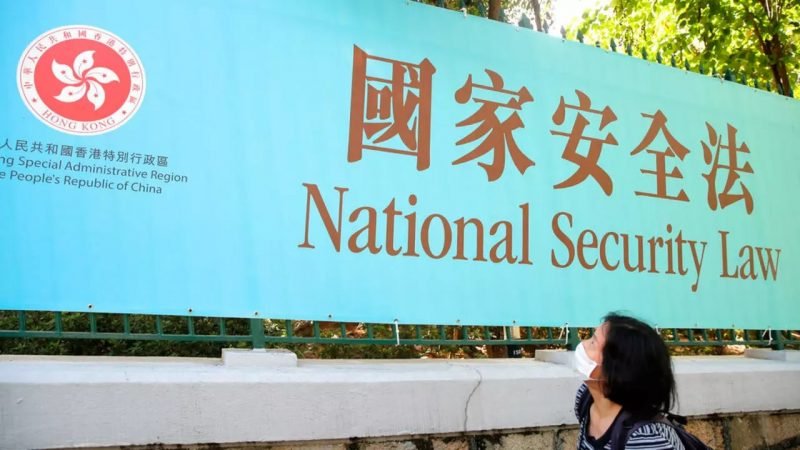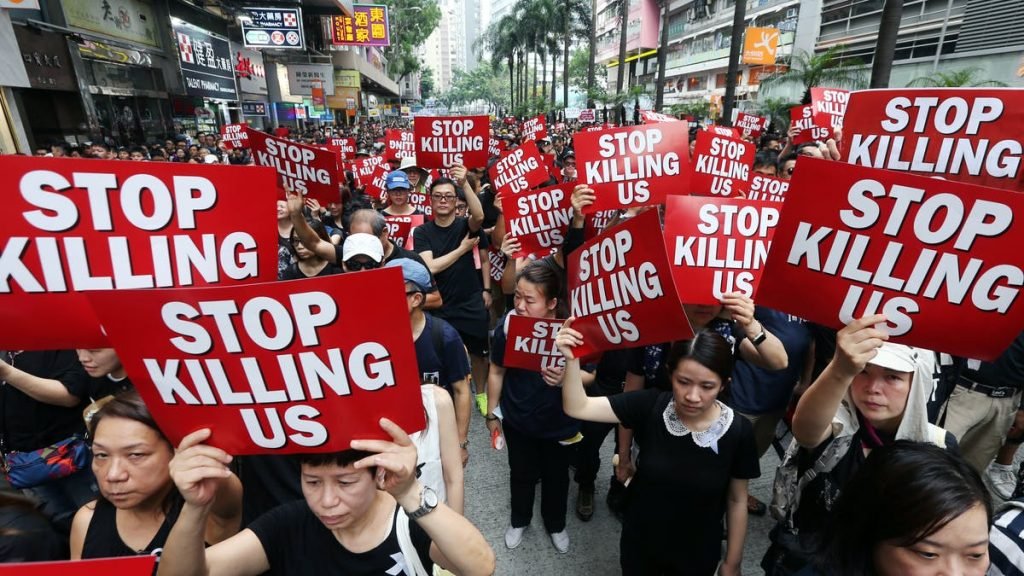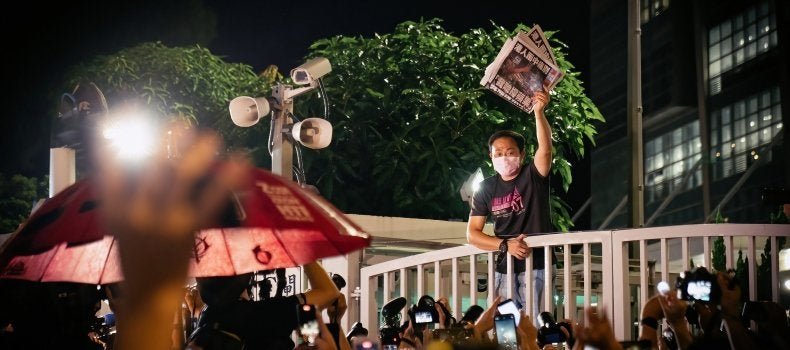How has business in Hong Kong fared under China’s national security law?

Hong Kong is marking a year since the imposition of new security laws which have led to the arrest of more than 100 people, including protesters, pro-democracy campaigners and journalists.
Critics say basic human rights have been undermined. China says the legislation was needed to halt a wave of protests which swept through the city in 2019, some of which turned violent.
The Kootneeti’s Indo-Pacific Editor Duncan Bartlett has been discussing the situation with the BBC’s Business reporter in Hong Kong, Andrew Wood.
Andrew Wood: Today (Wed 30th June) marks the one year anniversary of the new security laws in Hong Kong. What impact is that having on the city’s reputation as an international business hub?
Duncan Bartlett: Let’s consider the positive aspects first. Hong Kong’s economy is growing strongly at the moment. So if we look at the first quarter of this year, Hong Kong racked up 7.8 percent growth – a very impressive figure. However, it was bouncing back after a recession and it was helped by the global economic recovery led by the Chinese mainland and the US.
In China’s view, the Hong Kong Special Administrative Region (SAR) remains one of the world’s most attractive financial hubs and it’s clear that many investors continue to use it as a way of trying to cash in on the rapid growth of Chinese mainland economy. More than a hundred new companies listed their shares on the Hong Kong stock exchange last year, despite the pandemic. So Hong Kong, with over 4,000 Chinese firms worth more than $3 trillion, has sufficient strength to maintain its leading status as a global financial center.

However, I would urge some caution here. Last year in response to the new security laws introduced by China, the White House removed some of the legal privileges that Hong Kong enjoys, including privileges that help it connect seamlessly with the global economy. And I think there’s a real risk that companies will pull out of the city because of China’s interference in its government and legal system.
When I speak to business people, many of them tell me that they are worried their staff could fall foul of the national security laws, if they say the wrong things on social media, for example. Furthermore, there might be political reasons why a person might be accused of sedition or even terrorism. And if someone is arrestsed and sent to court, they might well face trial without a jury under a Chinese style legal system. That makes people who do business in Hong Kong very concerned.
So is Hong Kong now slipping down the scale of importance in comparison to other Chinese cities, such as Shanghai?
I think it’s quite likely that in the years ahead, Hong Kong will come to be seen as just another Chinese financial center, like Shanghai and Shenzhen. Hong Kong has lost some workers and businesses to those cities. There is no doubt that Hong Kong is becoming increasingly integrated into the Chinese economy and financial markets. Hong Kong’s stock market is dominated by Chinese stocks. Mainland firms now account for almost 90% of all new equity funds raised in Hong Kong and mainland companies are also becoming ever more dominant in terms of the number of listed firms, new listings, and daily turnover on Hong Kong’s exchange.
I think that China is moulding Hong Kong into its own likeness in many ways, which could ultimately make Hong Kong look less attractive as an investment destination.

Britain has offered visas and work opportunities to many people from Hong Kong who want to make a new life for themselves in the UK. How many have taken up that offer and what sort of life is in store for them?
The British government has set up a fund to help migrants from Hong Kong settle in the UK. About three million Hong Kong residents are eligible for a British national overseas (BNO) passport and around 34,000 people have applied so far.
However, there’s another group who are also interested in moving: I am talking here about Hong Kong’s very wealthy people. If you have a lot of assets and are prepared to invest heavily in the British economy you can apply for a so-called Tier One Investor visa. It’s not cheap but apparently many people think they’d have a better quality of life if they moved to the UK. A lot of the expensive fee-paying schools in Britain are getting inquiries from the families of children who want to start their studies this September. Many of them plan to catch up on their education which was disrupted in Hong Kong because of school closures caused by the 2019 political protests and then later by the pandemic.
Finally, what do you make of Hong Kong’s decision to force arrivals from Britain to accept this strict quarantine?
I think it’s a sign of international concern about Britain’s worsening pandemic situation. It’s not just in Hong Kong – many other places are tightening restrictions on arrivals from Britain. In Hong Kong’s case, the only new case of Covid recorded this week involved an arrival from Britain, so I can understand the concern. About 30 percent of the city’s population have received a Covid vaccines – and only 20 percent have had two jabs. So there’s a sense of vulnerability.
Parts of this interview were broadcast on the BBC World Service programme Newsday.


















